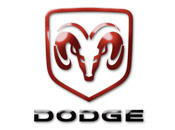Lower Your 2002 Dodge Stratus Car Insurance Rates
Want cheaper auto insurance rates for your Dodge Stratus? Car owners not familiar with comparing insurance rates on the web will find locating the cheapest insurance can be quite difficult.
Compare car insurance rates
Most larger insurance companies like Progressive, Allstate and GEICO allow consumers to get coverage price quotes online. Getting online rates is fairly straightforward as you just type in the coverages you want on the page. Upon sending the form, the quote system makes automated requests for your credit score and driving record and gives you a price quote determined by many factors.
This helps simplify price comparisons, but the time it takes to visit different websites and fill out multiple forms is a big time waster. But it’s necessary to perform this step in order to find the best price on car insurance.
A quicker way to get multiple rate quotes utilizes a single form to get prices from a bunch of companies at once. It’s a real time-saver, reduces the work, and makes rate comparisons much easier to do. After sending the form, it is quoted with multiple companies and you can pick any one of the pricing results.
If the quotes result in lower rates, you can click and sign and purchase coverage. It can be completed in less than 10 minutes and could lower your rates considerably.
In order to compare rates using this form now, click here and submit the form. If you currently have coverage, we recommend you replicate the limits and deductibles just like they are on your policy. This helps ensure you are getting a price comparison using the exact same coverages.
Which policy gives me the best coverage?
When it comes to buying coverage, there isn’t really a single plan that fits everyone. Your needs are not the same as everyone else’s.
For instance, these questions could help you determine if your situation might need an agent’s assistance.
- Do I need more liability coverage?
- What is the minimum liability in my state?
- Does my insurance cover my expensive audio equipment?
- Does my personal policy cover me when driving out-of-state?
- When should my teen driver be added to my policy?
- What is high-risk coverage and where do I buy it?
- How much underlying liability do I need for an umbrella policy?
- How much liability do I need to cover my assets?
- Where can I find high-risk insurance?
- What is an SR-22 filing?
If it’s difficult to answer those questions but you think they might apply to your situation, then you may want to think about talking to an insurance agent. If you don’t have a local agent, fill out this quick form.
Auto insurance coverages
Understanding the coverages of your policy aids in choosing appropriate coverage and proper limits and deductibles. The coverage terms in a policy can be difficult to understand and nobody wants to actually read their policy.
Uninsured and underinsured coverage
Your UM/UIM coverage provides protection when other motorists do not carry enough liability coverage. It can pay for injuries to you and your family as well as damage to your 2002 Dodge Stratus.
Because many people have only the minimum liability required by law, it only takes a small accident to exceed their coverage. This is the reason having UM/UIM coverage is a good idea. Frequently these coverages do not exceed the liability coverage limits.
Collision insurance
This pays for damage to your Stratus resulting from a collision with another vehicle or an object, but not an animal. A deductible applies then your collision coverage will kick in.
Collision can pay for claims such as sideswiping another vehicle, crashing into a ditch and colliding with a tree. This coverage can be expensive, so you might think about dropping it from older vehicles. Another option is to choose a higher deductible to save money on collision insurance.
Liability coverage
This protects you from damages or injuries you inflict on other’s property or people that is your fault. This insurance protects YOU against claims from other people. Liability doesn’t cover damage sustained by your vehicle in an accident.
Liability coverage has three limits: bodily injury for each person injured, bodily injury for the entire accident and a property damage limit. You commonly see policy limits of 50/100/50 which stand for $50,000 bodily injury coverage, $100,000 for the entire accident, and a total limit of $50,000 for damage to vehicles and property. Another option is a combined single limit or CSL which provides one coverage limit and claims can be made without the split limit restrictions.
Liability coverage protects against claims like medical expenses, repair bills for other people’s vehicles and repair costs for stationary objects. The amount of liability coverage you purchase is a decision to put some thought into, but you should buy as high a limit as you can afford.
Comprehensive coverages
This covers damage that is not covered by collision coverage. You first must pay your deductible then your comprehensive coverage will pay.
Comprehensive insurance covers things like fire damage, falling objects and damage from a tornado or hurricane. The most you’ll receive from a claim is the actual cash value, so if it’s not worth much more than your deductible consider dropping full coverage.
Coverage for medical payments
Med pay and PIP coverage pay for short-term medical expenses like hospital visits, X-ray expenses, doctor visits and pain medications. They are often used in conjunction with a health insurance policy or if there is no health insurance coverage. Coverage applies to all vehicle occupants in addition to getting struck while a pedestrian. PIP coverage is only offered in select states but it provides additional coverages not offered by medical payments coverage

